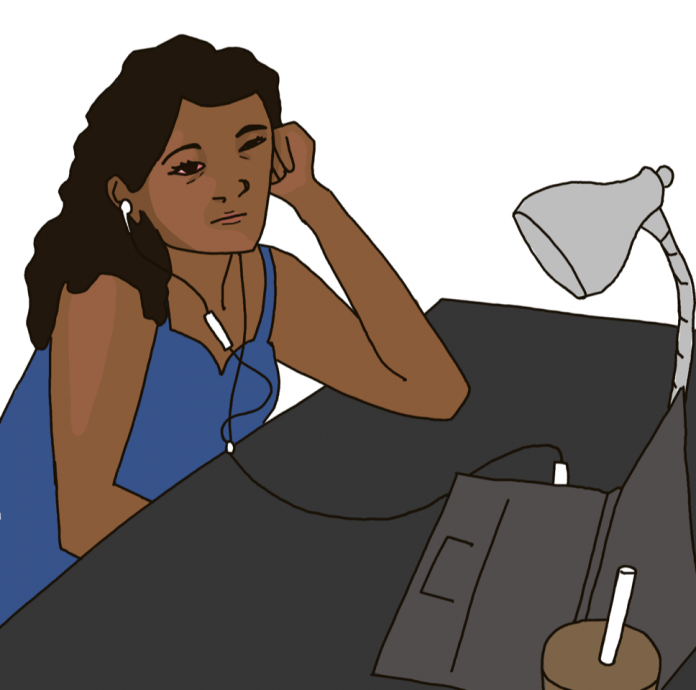Zoom fatigue. That’s right, now you have a scientific explanation to explain why you are tired in class. Some readers may be relieved to know that they are not the only ones who have noticed this situation; others, and maybe some skeptical professors, may think it convenient that it is now possible to tire from one of the few methods of education available this semester. Regardless of which camp you happen to fall into, I hope to offer some form of public awareness addressing this phenomenon. I believe it is something that the entire College of William and Mary community should keep in mind as we semi-proceed with online courses in the coming months.
So, why does Zoom make you tired? According to Bond University professors Olivia Bauman and Libby Sander, it is because “[p]eople feel like they have to make more emotional effort to appear interested, and in the absence of many non-verbal cues, the intense focus on words and sustained eye contact is exhausting.” Think about it. On Zoom, you can’t lean in to show interest in your conversation with a friend. You can’t stand up and move around if you’re trying to tell a story. You can’t even dart your eyes around the room to avoid direct contact, if socializing isn’t really your arena. Instead, you are effectively trapped in front of your screen, forced to make more physical efforts to display interest when participating in class discussions or listening to professors. Even worse — according to “National Geographic” — “If the video quality is poor, any hope of gleaning something from minute facial expressions is dashed.”
Many professors are now requesting that students keep their cameras on during the entire class time, either to measure their students’ participation in class or in a kind-hearted attempt to re-create the normalcy of seeing other faces during classes. While no sane person would dare tell a professor it is easier to teach to a screen full of names rather than faces, it is worth noting for professors that students may have more difficulty in the coming months with active participation and attentiveness in classes due to Zoom fatigue, especially if they face a gauntlet of multiple Zoom classes in a row. But wait, you may say, don’t professors also have to endure the same number of Zoom classes as their students, or possibly even more? Quite correct, but there is a problem notorious among college students that many professors seem to have a handle on: sleep, or a lack thereof. With a large number of courses available to learn from one’s own dorm or bedroom, heavy limits on social gatherings, and an increasing possibility of tiredness based on one’s Zoom load, college students will reclaim what has been lost to us for so many years: sleep. Unfortunately, due to the factors listed above, we are not bound to develop healthier sleeping habits as a result of adjusting our routines. If anything, the lack of an ability to maintain our regular daily routines will only further confuse our sleeping schedules. After sitting through multiple Zoom classes in a row, possibly in the comfort of our own dorm or bedroom, it is very possible we may only be a few short steps away from relieving our exhausted bodies. Can college students really be expected to deal effectively with such pressures for a full semester?
I am not suggesting that the College overhaul its revised system of course delivery. I do not envy them the task of having to carefully calibrate a plan for the whole community to return to campus safely. However, just as we all are reminded to keep track of our healthy behaviors, we should all also prepare ourselves in the future for the possibility of Zoom fatigue. Likewise, students should not be heavily penalized for failing to give their undivided attention in class from time to time. We care just as much as our professors about our education, but we are not tireless machines.
Email Lucas Harsche at

